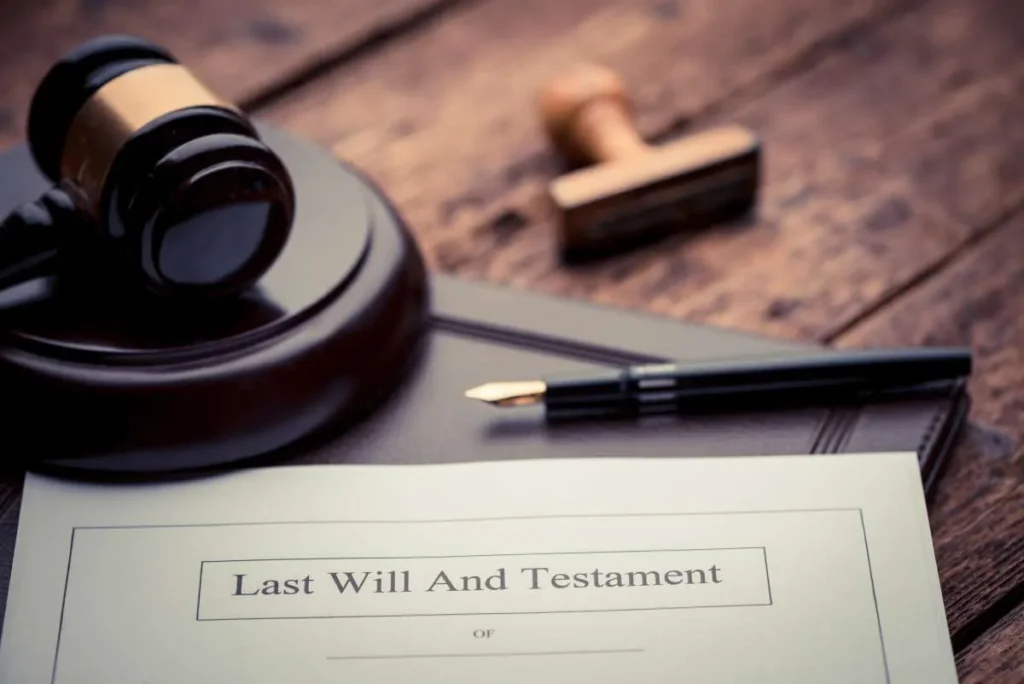A will is one of the most important legal documents a person can have, yet many people die without one. When this happens, their estate does not automatically pass to their closest loved ones. Instead, it is distributed according to Texas intestacy laws, which may not align with what the deceased would have wanted. Dying without a will—also known as dying intestate—creates a legal and financial maze for surviving family members.
It can lead to court battles, unexpected inheritances, lengthy probate proceedings, and even the loss of property that could have otherwise remained within the family. Understanding what happens when someone dies without a will in Texas is crucial for those who want to plan their estate. It is also necessary for those left behind trying to navigate the legal process.
What Happens Immediately After Someone Dies Without a Will?

When a person dies in Texas without a will, their estate typically enters probate. This is a legal process where the court oversees the distribution of assets and settlement of debts. However, this process is often more complicated when there is no will because:
- There is no named executor to oversee the estate, so the court must appoint an administrator.
- The court must determine the legal heirs based on intestacy laws, which may lead to disputes.
- Without clear instructions, delays and additional legal fees are common.
Family members may not have immediate access to bank accounts, real estate, or other financial assets until the court makes determinations about inheritance. This can create financial hardships, especially for spouses and children who depended on the deceased for support.
Texas Intestate Succession: Who Inherits the Estate?
Texas law has strict rules about how assets are distributed when there is no will. These laws vary depending on the deceased’s marital status. It also depends on whether they had children and whether their parents or siblings are still alive.
- If the deceased was married and had children only with their spouse: The surviving spouse inherits everything.
- If the deceased was married but had children from a previous relationship: The surviving spouse keeps half of the community property, while the deceased’s children inherit the other half.
- If the deceased was unmarried but had children: The children inherit everything in equal shares.
- If the deceased had no spouse or children but had living parents: The parents inherit the estate.
- If the deceased had no spouse, children, or parents: Siblings inherit the estate.
- If the deceased had no close relatives: The estate may pass to more distant family members, such as cousins or aunts and uncles. If no relatives are found, the assets eventually go to the state of Texas.

While these laws might seem straightforward, they often lead to unexpected complications. For example, if a couple was in a long-term relationship but never legally married, the surviving partner is not entitled to inherit anything under Texas law. Similarly, stepchildren who were not legally adopted are not recognized as heirs, even if they were raised by the deceased.
Common Challenges in Intestate Succession
When there is no will, family members often face several unexpected challenges. These could include legal disputes, financial difficulties, and prolonged probate proceedings.
One of the biggest issues is disagreement among heirs. Without written instructions from the deceased, relatives may have conflicting opinions on who should manage the estate, who should inherit certain assets, and how personal property should be divided. These disputes can turn into expensive court battles, sometimes leading to strained relationships that never recover.
Another challenge is the financial burden placed on the estate. Probate can be costly, especially when additional legal work is required to determine rightful heirs or resolve disputes. If there are outstanding debts, creditors must be paid before any assets are distributed, potentially reducing the inheritance available to family members.
Additionally, the lack of a will can cause complications when dealing with jointly owned property. For example, if the deceased owned a house with another person, it may not be clear who has the legal right to keep the home. If the property must be sold to divide the assets, heirs may be forced to move out or lose a family home they intended to keep.
What Happens to Specific Assets Without a Will?
While intestacy laws determine who inherits an estate, certain assets may be handled differently depending on how they were owned or structured.
- Bank Accounts and Investments: If the deceased had payable-on-death beneficiaries listed on their accounts, those assets will go directly to the designated individuals rather than going through probate. However, if no beneficiaries were named, the assets will be distributed according to Texas intestacy laws.
- Real Estate: Property ownership matters when determining inheritance. If a home was jointly owned with a right of survivorship, it automatically passes to the co-owner. If it was solely owned by the deceased, it becomes part of the probate estate.
- Retirement Accounts and Life Insurance: These often have named beneficiaries, meaning they pass outside of probate. But if no beneficiary was listed, the assets may be subject to intestacy laws.
- Business Ownership: If the deceased owned a business, the future of that business depends on how it was legally structured. Without a will or succession plan, ownership may be divided among heirs, potentially causing operational disruptions or forced sales.
How to Avoid the No-Will Nightmare
The best way to prevent intestacy-related issues is to create a valid will and comprehensive estate plan. A will ensures that assets are distributed according to personal wishes rather than state law. It also allows the selection of an executor, which can simplify the probate process and minimize family conflicts.
For those with significant assets, blended families, or complex financial situations, additional estate planning tools, such as trusts and beneficiary designations, may be necessary. Trusts can help assets bypass probate, protecting inheritances and ensuring a smoother transition of wealth.
It is also important to keep beneficiary designations on accounts up to date. Many people forget to update these after major life events, such as marriage, divorce, or the birth of children. An outdated beneficiary designation could result in an ex-spouse receiving an inheritance instead of a current spouse or children.

Final Thoughts
Dying without a will in Texas can lead to long, complicated, and sometimes heartbreaking legal battles for loved ones left behind. Instead of allowing state laws to dictate who inherits, it is far better to take control by drafting a legally valid will and planning for the future.
The probate process without a will can be expensive, time-consuming, and emotionally draining. Families often face disputes, financial uncertainty, and difficult decisions about property, assets, and business interests. By taking steps to create a will and an estate plan, individuals can ensure that their wishes are honored, their loved ones are protected, and their legacy is preserved.
If you or a loved one do not yet have a will, now is the time to take action. Seeking legal guidance can help create a clear estate plan that minimizes future complications, ensuring a smoother and more predictable transition for family and heirs.








